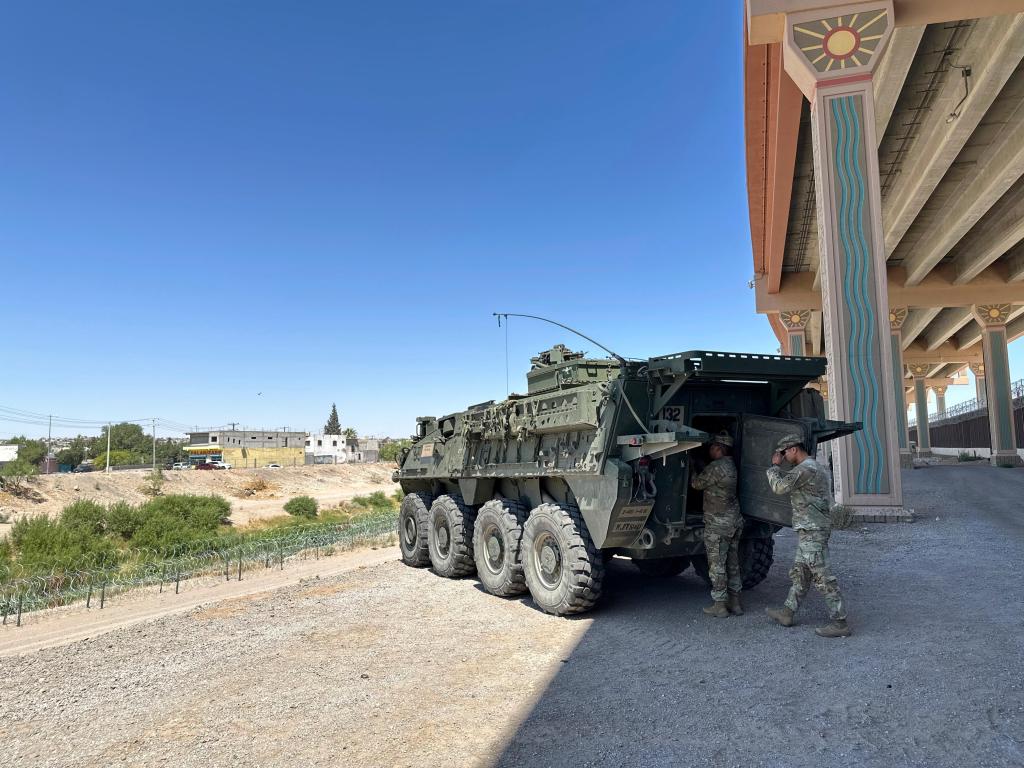
It’s one thing to deploy United States military troops in the aid of the police force in Washington, D.C., however unusual that may be.
It’s another thing for a president who campaigned on the platform of minimizing foreign entanglements to direct the armed forces to target foreign drug cartels — on foreign territory.
Yet that’s what a secret directive signed by President Trump last week would do. It’s wrong from the perspective of the American people, the president’s citizenry, and it would not be welcomed by our allies and adversaries in the Western Hemisphere, this invasion of their sovereign nations. The White House should back off.
As four reporters from The New York Times revealed last, the directive from the president “would … begin using military force against certain Latin American drug cartels that his administration has deemed terrorist organizations, according to people familiar with the matter … The order provides an official basis for the possibility of direct military operations at sea and on foreign soil against cartels.”
In an already chaotic world, with so many other diplomatic balls already in the air — today’s Alaska summit on the Russia-Ukraine war with Vladimir Putin, the stiff new tariffs put into effect on America’s trading partners — the very idea of right now using our country’s military force in other countries against drug runners, whether it involved invading against the wishes of the absolutely appalling dictatorial government of Venezuela or of our democratic friends and neighbors in Mexico, is an enormously bad idea in the first place.
Plus, as the Times reports, the legal issues raised are profound. Would it count as “murder” if U.S. forces not authorized by Congress killed civilians —including criminal suspects — who pose no imminent threat to our national security?
The State Department would appear to say that no, it wouldn’t. In February, it began to call Tren de Aragua, Mara Salvatrucha (known as MS-13) and a few other smaller groups “foreign terrorist organizations,” saying that they constituted “a national-security threat beyond that posed by traditional organized crime.”
No Americans that we know of believe that federal authorities shouldn’t continue to take strong action to prevent the flow of dangerous drugs across our borders. And it’s probably fine with all of us to know that Venezuelan dictator Nicolás Maduro has been indicted in this country on drug trafficking charges, with the administration describing him as a cartel head. Attorney General Pam Bondi said he “will not escape justice and he will be held accountable for his despicable crimes.”
Opposing putting our troops into the conflict on foreign soil doesn’t mean that we are against using military intelligence in the fight against the cartels — though even that is demonstrably fraught with problems. In the 1990s, our armed forces helped Colombia and Peru through sharing information about civilian aircraft that were suspected of shipping drugs with radar data and listening in to their radio communications. But when those governments then shot down such planes based solely on the intelligence, the Clinton administration halted the assistance.
Parachuting in American soldiers to perform law-enforcement arrests, or mounting some kind of land or sea invasion to capture or kill foreigners involved in the drug trade — this is not the proper work of the American military. The White House needs to reverse course and concentrate on our already complex legitimate foreign affairs.
Originally Published:



